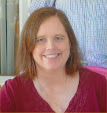Yesterday I tried to have a discussion with someone on Twitter. Not the best forum, I’ll admit, and it didn’t go well. It ended with a general comment from him to the world that “you can’t talk to a settler who doesn’t believe in Reconciliation”.
I need to address that, if only for myself. And in more words than I am allowed on Twitter. I hope that others will understand, but that is secondary.
First, the term “settler”. Many people use it to describe people like me, who are not Indigenous Canadians, and not recent immigrants. I find it insulting. I am not a settler. I was born here. This is my country, my only home. I am a Canadian.
As for Reconciliation, when I first heard about it, I thought it was an excellent idea. Two groups of people, who have always seen each other as “different” needed to solve their issues and work together. But that wasn’t what the government meant at all. The government version of Reconciliation seems to be based on “you are all good, we are all bad, what can we do to show how sorry we are?”
An example is the Twitter subject: Queens University has decided to change the name of their law school, which was named after John A. Macdonald, the first Prime Minister of Canada, because he also started residential schooling. Agreed, residential schools were wrong. No argument there. But this man was still the first Prime Minister of Canada. Reconciliation doesn’t mean – or it shouldn’t – that ONLY Indigenous history now has value, and anything that was done by white people should be erased. We should honour both.
Another current issue that should not be is the lobster fishing crisis. There is a reason the laws on fishing seasons, lobster size, etc. were put in: to protect the stock. Those laws, therefore, need to apply to everyone. When you put in rules, even perfectly fair ones, and say “but some people don’t have to follow them”, you are going to provoke anger in those who are following them. The end of racism has to start at the top. As long as government is treating one race differently than they treat all of the others, I see no way to eliminate racism.
I remember a story my mother told me one day when she came home from the corner store. Two little girls, maybe seven or eight years old, had been in front of her in line. They were clearly best friends; one was white, the other Indigenous. Each had the same brand of chocolate bar, and the white girl paid first. Then her friend went to pay, and was charged less. The first child saw this, and said to the cashier “Hey, how come she paid less than me?” He shrugged, and said “Because she’s Indian”. This obviously sounded ridiculous to the child, so she turned to her friend, and asked her “Why do you pay less than me?” The other child also shrugged, and said “Because I’m Indian”.
I don’t know what happened with those children, but it seems to me that is the way racism in this country is started: people feeling they are being treated unfairly because of their race, whatever it is. And the best way to start to eliminate this is for the government to treat all races equally.
